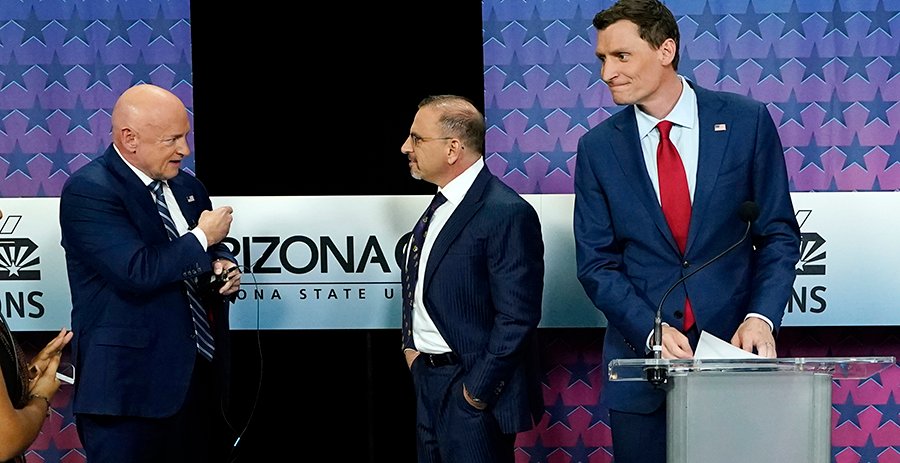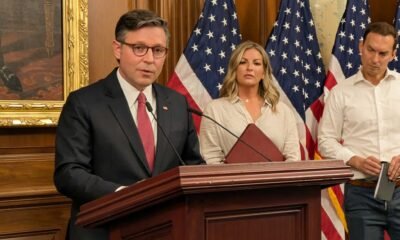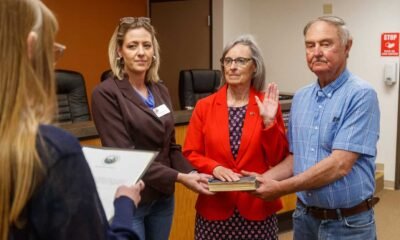2024 Election News
Green Party and GOP Senator Challenge New Rules That Could Exclude Greens from Debates

The exclusion of the Green Party candidate from an upcoming televised Senate debate has become a contentious issue, centering around allegations of misleading information. Eduardo Quintana, the nominee from the Green Party, reportedly did not receive an invitation due to failing to secure at least 1,239 votes in the primary—a requirement deemed necessary to share the stage with Democrat Ruben Gallego and Republican Kari Lake.
Chris Kline, president and CEO of the Arizona Media Association, emphasized that the threshold is set at 1% of total primary votes. He acknowledged that the Green Party has a small registered voter base, yet noted that Quintana could have appealed to political independents to reach the vote target.
However, Quintana contends that the rationale neglects a significant detail: the Green Party’s closed primary system, which restricts voting to party members only. He argues that the debate rules established by Kline’s organization and the Citizens Clean Elections Commission are inherently biased against minor parties.
In response to Quintana’s concerns, Kline stated that if the closed primary was a factor, that decision lies with the Green Party, outside the purview of the debate organizers. Quintana, in turn, highlighted that the rules published during the decision-making process did not specify a voting threshold for general election debate participation.
Quintana expressed frustration over a lack of notification regarding changes to participation rules, claiming the conversation around the rules was unclear and he only learned about the requirements after they had been implemented.
Despite the controversy, Kline reaffirmed his commitment to the planned Oct. 9 debate, asserting that featuring only the two candidates who garnered substantial votes in their respective primaries makes the most efficient use of the allotted 56 minutes of airtime.
Sen. Jake Hoffman (R-Queen Creek) has since questioned the Clean Elections Commission regarding the enforcement of these new restrictions, suggesting potential legal violations. “At worst, the commission has broken the law,” he stated, prompting scrutiny over the debate format.
Historically, general election debates endorsed by the commission included all qualified candidates. For example, two years ago, Libertarian candidate Marc Victor participated in the debate despite receiving only 3,065 primary votes.
The shift appears to stem from the commission’s recent partnership changes, moving away from KAET-TV to a deal with the Arizona Media Association. Kline claimed organizations agreed to limit debate time and participants due to commercial viability, not targeting any specific candidates or parties.
Kline defended the decision, stating it aimed to create a fair debate framework that includes a finite number of candidates based on a reasonably low threshold. Despite his insistence that there were no attempts to exclude any candidates, he maintained the debate would remain at 56 minutes, deeming it the optimal compromise.
As the general election progresses, concerns linger regarding the legality of enforcing restrictions that may disproportionately affect smaller party candidates. Hoffman raised the possibility that the commission’s alterations lacked proper authorization, raising questions about the validity of the ongoing debates.
Tom Collins, executive director of the commission, has refrained from commenting on potential rule violations, indicating that a formal response to Hoffman’s inquiry will follow later this week. Kline remains confident that the rules in place align with the commission’s operational framework, despite the ongoing debate around the restrictions.


















